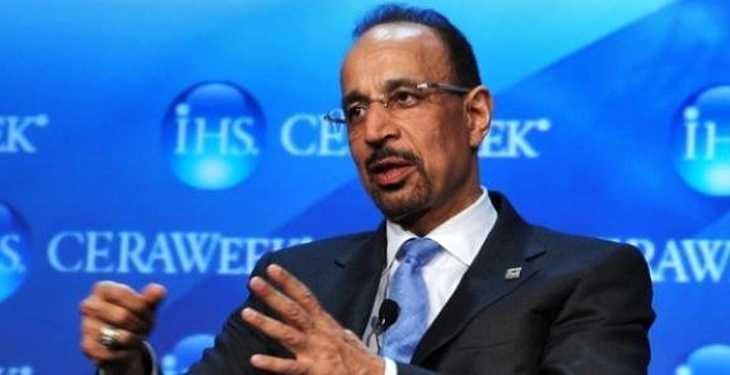Saudi Energy Minister Khalid al-Falih said on Tuesday that oil market fundamentals were improving after an agreement struck with top oil producers to curb supply and end a two-year glut took effect.
The kingdom led a pact between the Organization of the Petroleum Exporting Countries and non-OPEC producers, such as Russia and Kazakhstan, to cut global crude output by about 1.8 million barrels per day from Jan. 1, and bring supply closer to demand.
Saudi Arabia had cut beyond what it had pledged in the agreement and brought the kingdom’s output below 10 million bpd, he said.
Global oil demand would grow by 1.5 million bpd in 2017, and increased output from the United States, Brazil and Canada would be more than offset by natural declines in aging fields, he said.
Oil inventories worldwide had fallen “slower than I thought,” in the first two months of the year, Falih told energy executives and oil officials gathered at the CERAWeek industry conference in Houston.
Inventories in developed countries remain about 300 million barrels above the norm, he said.
Still, it was premature to consider whether or not the cuts should be continued into the second half of the year, he said. OPEC next meets in May, he said.
On Monday, oil ministers from fellow OPEC member Iraq and non-OPEC Russia also said it was too early to discuss extending the deal, while the head of Angola’s state oil firm said she thought curbs should continue.
“There is also cause for cautious optimism as we see the ‘green shoots’ of the recovery,” Falih said, but “We should not get ahead of the market.”
Greater price arbitrage between east and west oil markets that “indicate the cuts are biting,” he said. U.S. crude cargoes have increasingly flowed to Asian buyers as the market has tightened, according to Reuters.
Addressing many top executives of U.S. shale producing firms who Saudi Arabia targeted in a two-year price war that aimed to drive many of them out of business, Falih warned there would be “no free rides” for non-OPEC producers.
OPEC would not let rival producers take advantage of the cuts to underwrite their own production investments, he said.
While Saudi Arabia welcomed increased output from shale producers to help meet rising supplies, he cautioned that a fast-response from shale could be discouraging investment in multi-year, long-term projects in other oil sources.
Falih said he was concerned that investment in those projects was falling behind what was needed to meet future demand increases. Demand continued to grow in the developing world and predictions that the world would soon reach peak demand were “misguided” and not helping encourage investment, he said.
The market could absorb between 3 million and 5 million barrels of new oil over time because demand is improving, he told CNBC. He did not specify over what period.
Saudi Arabia does not want OPEC to intervene in the oil market to address long-term structural shifts, but to address “short-term aberrations,” he said.
